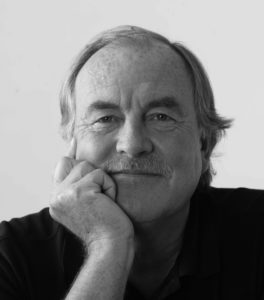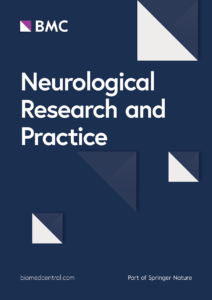What are the current hot topics in neurology, what do you anticipate will be the challenges and trends in the future within the field?
Neurology is such a rapidly moving field that it is impossible to anticipate what the new trends will be. We were frequently proven wrong with our predictions in the past, while completely unexpected developments happened and new avenues were opened.
One thing however is for sure: There will be numerous innovations, new strategies, surprising twists and turns, and within the new journal Neurological Research and Practice we try to capture some of them.
What are your research interests and what is your background?

I was Professor and Chairman of the Department of Neurology at the University of Heidelberg in Germany for 27 years (from 1987 until 2014) and I am now a Senior Professor of Neurology.
My main scientific and clinical interest is in stroke and critical care neurology. I pioneered the field of thrombolysis for acute stroke and initiated several new management options for large infarctions including hypothermia and decompressive surgery. I am also a specialist in stroke prevention.
I was the Founding President of the European Stroke Organization (ESO), was First Vice President of the World Federation of Neurology (WFN) and I am currently the President of the World Stroke Organization (WSO).
You have been nominated by the German Neurological Society to be the Editor-in-Chief Neurological Research and Practice. Please could you tell us more about the society and their plans for the future?
I was very pleased and honored when the leadership of the German Neurological Society asked me to help set up Neurological Research and Practice as the official English journal of the society and made me the founding Editor-in-Chief. The German Society of Neurology is the largest neurology society in Europe, second to the American Academy of Neurology in the western hemisphere, and certainly one of the five largest in the world. Scientifically, German neurology has been very active. In most English language neurology journals submissions from Germany have some of the highest acceptance rates.
Why did the German Neurological Society decide to have an open access journal?
The 3 German language neurology journals that are/were linked to the society were only read in German speaking countries. The society decided to change this by establishing an English open access journal to allow better coverage of what is going on in German neurology for an international readership. Of course we also encourage submissions from all around the globe to represent all neurological studies worldwide.
All articles published in Neurological Research and Practice will be made freely and permanently accessible online immediately upon publication, without subscription charges or registration barriers. The German Neurological Society will cover the Article Processing Charges for all articles so that the authors will not have to pay any charges.
What kind of research and which topic does Neurological Research and Practice consider?
As represented in the journal’s name Neurological Research and Practice, we want to cover the entire neurological spectrum from clinical basic research to practical aspects in patient care. We accept standard articles types such as ‘Reviews’, ‘Research article’ and ‘letter to the editor’, but we also encourage authors to submit ‘Clinical Trial Protocol’ and ‘Standard Operating Procedures’ (SOP) with visual flowcharts as well as ‘Guidelines’.
Neurological Research and Practice is a new open access journal from the German Neurological Society (DGN), and aims to be a high quality international forum for innovative and exciting advances in neurology and neuroscience.
For further information on Neurological Research and Practice, please visit the journal ‘About’ page.
The journal is overseen by the Editor-in-Chief Werner Hacke (University of Heidelberg) and is supported by a prominent Editorial Board.
To keep up-to-date with the latest articles published in this exciting new journal, sign-up for article alerts.

Comments